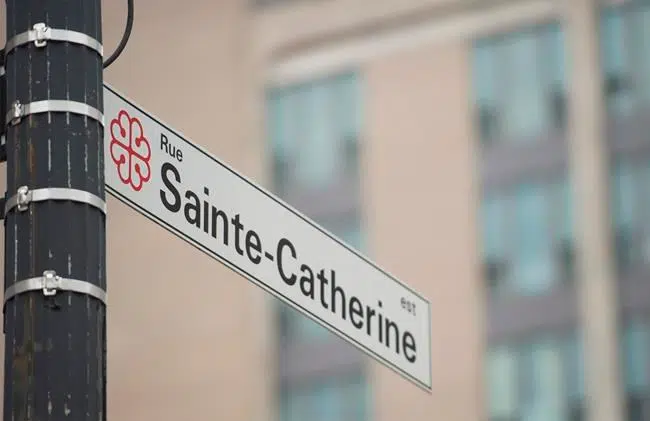
Montreal mayor announces Ste-Catherine Street will be revamped
Montreal’s iconic Ste-Catherine Street will be getting a 21st-century facelift that includes slashing the number of driving lanes and parking spaces in order to make more room for pedestrians, the city announced Thursday.
The plan will reduce a 670-metre stretch of the artery from two driving lanes to one, plus a shoulder for deliveries, while increasing the width of sidewalks by 60 per cent.
The four-year project also includes eliminating parking from the segment and planting nearly 100 trees.
The city is hoping the new look will help to revive interest in the aging commercial thoroughfare, which has been losing ground as tourists flock to other parts of the city.
